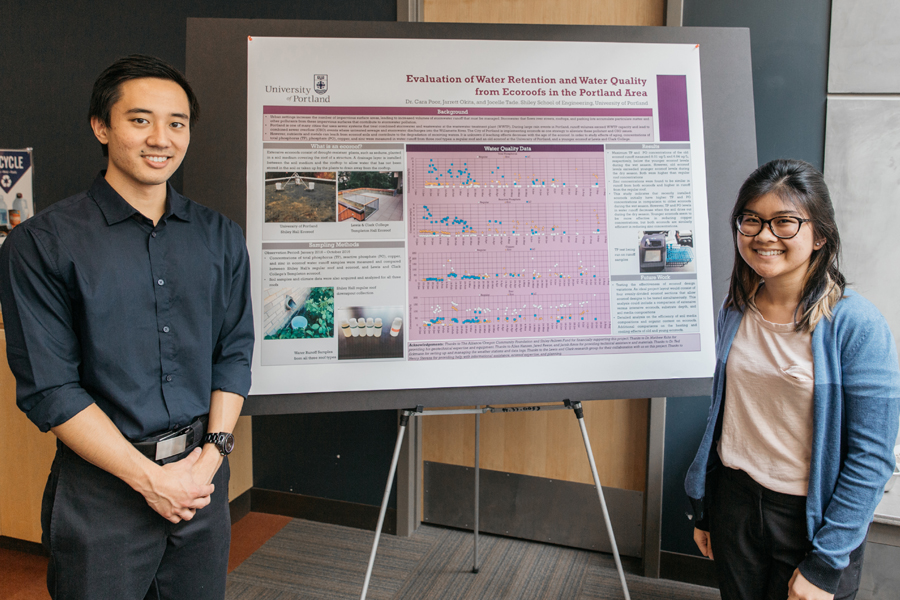
Engineering
Undergraduate Scholarly Engagement
September 28, 2016

Shiley School of Engineering students and professors, along with industry partners and collaborators from other Pacific Northwest institutions, are undertaking innovative research projects utilizing grants from the Oregon Alliance of Independent Colleges and Universities (The Alliance).
Cara Poor, civil engineering professor, and her team of two students, Jarrett Okita and Jocelle Tade, recently finished their project “Sustainability of Ecoroofs: An Evaluation of Runoff Water Quality from Ecoroofs in the Portland Area.” The team, along with a group from Lewis & Clark College, explored the cooling effect, water retention, and water quality of the ecoroofs atop University of Portland’s Shiley Hall and Lewis & Clark College’s Templeton Hall.
“The Alliance Project allowed me to learn and hone my research skills, as well as implement them in a budding field. Collaborating with other undergraduate students and faculty was a valuable experience that allowed all of us to exchange ideas with each other,” senior Okita said. “Working on the Alliance Project has swayed my decision to further pursue research in the near future.”
The research team, under the advisement of the City of Portland, measured concentrations of total phosphorus (TP), phosphate (PO43-), copper, and zinc in roof water runoff. The study concluded that recently installed ecoroofs have higher TP and PO43- runoff concentrations than older ecoroofs during wet seasons, but TP and PO43- decrease when the soil dries out. New ecoroofs were observed to be more effective in reducing copper concentrations than older ecoroofs, but both were similarly efficient in reducing zinc concentrations.
“This experience allowed students to understand one of the stormwater controls commonly used by the City of Portland, as well as interact with an industry advisor,” Poor said. “Research experiences are invaluable for undergraduate students, particularly those who intend to go to graduate school.”
University of Portland
5000 N. Willamette Blvd.,
Portland, Oregon 97203-5798
503.943.8000
This website uses cookies to track information for analytics purposes. You can view the full University of Portland privacy policy for more information.
